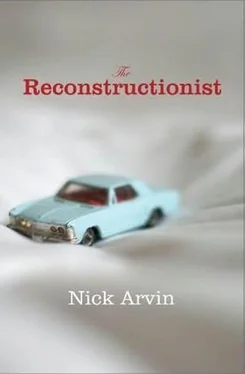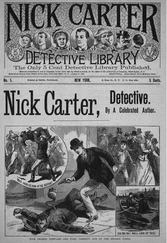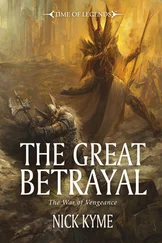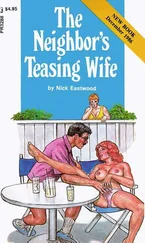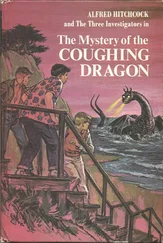‘He paved your yard?’ She looked shocked.
‘Dad never could get the screws in his head all tightened down. Once I went outside and found a gas-pump nozzle stuck in the gas tank of his car, hose hanging down. He’d forgotten to take it out at the gas station and just drove away. It might have been in there for days if I hadn’t pointed it out.’
She sat blinking, as if trying to remember if she had ever done such a thing.
Ellis said, ‘When I told him about it, he said, “I thought something sounded funny.”’
‘Well,’ she said, ‘we all have our quirks.’ She twisted a foot against the carpet. ‘Can I get you a drink?’ Ellis refused. She nodded. ‘I should be glad he’s gone, really. He met a woman who throws pottery.’ She glanced around. ‘Well, maybe he’s known her for a while. She makes it, I mean. The pottery. Her hands are ugly things.’ She smiled as if for a camera. ‘Oh, it’s true he never totally lived here. Maybe he told you that. He had his own place, but he stayed here. He’d come here crying like a baby, and I’d take care of him. A lot of drama. Eventually, he’d leave, then a couple of days later he’d come back. He didn’t have anyone else to take care of him. Maybe now the potter is taking care of him.’ She shrugged. ‘Do you understand? I thought you might understand, somehow.’ She nodded her rocking chair. ‘Why did he do this, now? What’s wrong with him? How can I help him? I thought maybe – He was very moved by your visit. He didn’t have many friends.’
‘I don’t really have any insight -’
‘He often hides what’s in his heart. But there was a connection between you, wasn’t there?’
Ellis shook his head.
She stood and made little fluttering gestures. She said, ‘Should I give up hope?’
Ellis didn’t dare say a thing.
‘Shouldn’t I?’ she said. ‘But if I could, wouldn’t I have years ago?’
‘Maybe a little time apart from him will help,’ Ellis said, then regretted having said it. For a time he watched her as she paced. ‘I’m sorry,’ he said.
‘He’s old now, of course,’ she said, ‘but he was a good-looking young man.’ She retrieved a photo from the clutter on a shelf. ‘That’s him with his brother,’ she said. ‘His brother died several years ago of a stroke, unfortunately.’ Two young men, probably in their twenties, stood holding each other around the shoulders and lifting champagne glasses, wearing matching black suits and ties, one with a moustache and the other O-ing his mouth as if singing. Either one could have been a plausible younger version of James Dell. Ellis hazarded, ‘He’s the one singing?’
Mrs Dell sat again in her rocking chair and gazed at the ceiling. ‘He hated singing.’
Ellis wasn’t sure how that answered the question. He didn’t ask. It seemed he might only, somehow, grow even more confused, and he didn’t know if he could bear that. At the top of the window he saw a long series of coal cars creeping silently by on the railway embankment.
When he stood, she stood, and he stepped forward and awkwardly accepted her embrace. Returning to the minivan he saw, under the blue spruce, two pans of standing beer. He stopped at a gas station, then steered for the interstate. The sun made a white smear in a silver-grey sky. He passed over a stretch of roadway dark and shining with wet, but he saw no rain. The exit ramp lifted the minivan upward as if to launch it into the sky. He would see his father.
Because until now he had avoided it, he went first to the old house. The white siding had been replaced with pale blue and – absurdly, he thought – a wagon wheel and ox yoke had been nailed to the wall on either side of the front door for decorative effect. The TV antenna that he had climbed no longer existed. Grass, shaggy and weedy, had replaced the concrete lawn. A pair of maples he had never seen before reached up twenty-five feet or more. The driveway lay empty, and he could see nothing in the windows. Strange to think of strangers living here, but his family hadn’t been the first to live here, either.
He stood out of the minivan, crouched on the kerb, put a hand in the lawn. Surely, he thought, remnants remained here – paint under the paint, holes patched in the drywall, scratches in the floors, fragments of broken concrete buried in the lawn – by which a former life could be reconstructed. As he crouched with his hand pressed to the grass, watching the house, it seemed his parents might walk out, or Heather, or Christopher, or himself, now, or now, or now.
He stood and brushed the clinging grass from his hand and saw that the impress of the grass remained in the skin. He walked to the park, which lay nearer than it seemed in his memory. The swings had been taken out and unmarked turf lay where the scalloped places under them had been. In the intersection moved traffic. Blue pickup. Silver coupé. Yellow school bus. A green convertible – not Boggs’s.
As he walked back to the house no one was around, except in the vehicles on the road, and he felt as if moving on foot made him strange and atavistic. From the minivan he watched the house a while longer, then turned the ignition.
His father’s house lay a dozen miles to the west, and Ellis drove slowly that way, following first along a river, then down a long straight two-lane interrupted now and again by stop signs at the intersections of narrow dirt roads spanning off to perhaps a house, a farmer’s field access, a fishing pond, a patch of private hunting preserve. After a signpost indicating the county line, the roadway became an assemblage of patched cracks and potholes that set the minivan’s panels and joints rattling in bright percussion and the steering wheel shaking in his hands. Weeds flourished to the edge of the asphalt and infiltrated its cracks. He passed ragged houses with missing roof shingles, listing into their foundations, wood trim rotting, lawns decorated with tyres and broken concrete. In front of one house a tall woman with a sledgehammer laboured to destroy something on the ground.
He turned onto a dirt-and-gravel road that rolled below the van more smoothly than had the patched asphalt. On either side lay open fields, but the road was lined with oaks and maples that reached over the road so that he seemed to be passing down an arbour. Dust pulled up off the road accumulated on the rear window in a brown fungous pattern. Tunnelling under glinting leaves with the tyres murmuring on the gravel, he felt he would be content to drive on and on and on this way and never arrive.
He slowed approaching the driveway, wallowed up to it, turned in.
The solitary object of any size on the horizon was the house, a two-storey clapboard farmhouse, grey neglect gripping its edges. When he stopped at the end of the drive he saw behind the house a long, metal-roofed shed and, on open ground a little further away, a solitary white toilet. Past the toilet lay only open field, ploughed into parallel furrows and abandoned to low weeds. In the distance ran a trace of fence and low green brush along it, demarcating the next field. The land fell gradually toward the line of the fence and rose again on the other side. Where the land appeared to stop, the sky began with a ridge of clouds the colour of used motor oil.
He stood out of the minivan and kicked through untended grass to the front porch – a pair of naked two-by-fours held up one corner of the porch roof, and missing posts gap-toothed the surrounding rail. Here and there on the floorboards stood empty beer bottles, a sprawling water-damaged phone book, a half of a Clorox bottle filled with rusting nails.
When he put his fist to the door, no one answered. His minivan was the only vehicle in the driveway. He sat on the porch steps to wait.
He destroyed without energy or malice the first half-dozen mosquitoes that came to him, then gave up and let them have what they wanted. Gnats swarmed in clouds over the grass. He closed his eyes, rested his head on his arms.
Читать дальше
